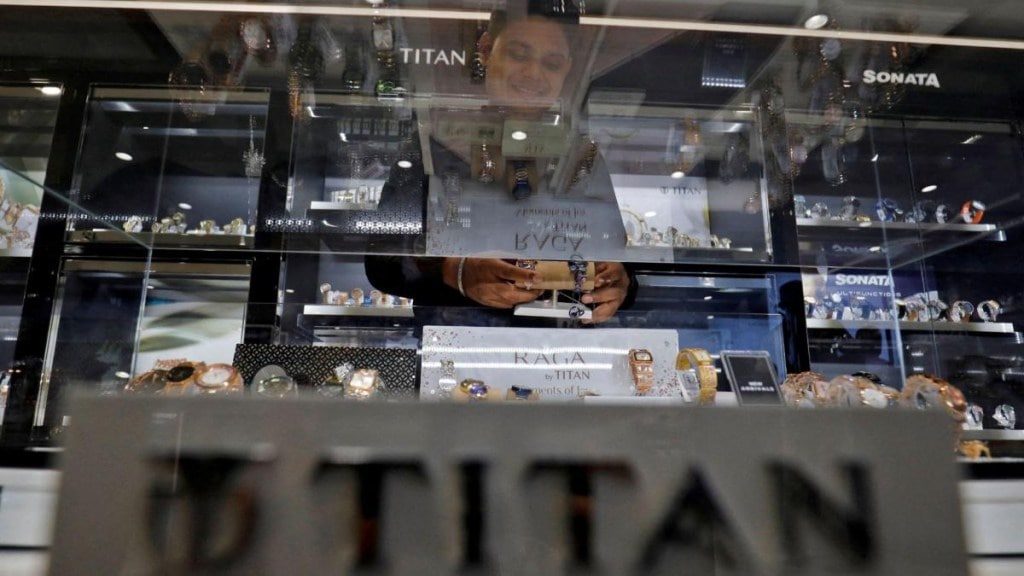In a world where cash burn is the norm, Caratlane is an exception. The omni-channel retailer, which specialises in diamond-studded jewellery and caters for the youth, has been profitable for the last three years now. As co-founder Mithun Sacheti puts it, the focus on cash flows by cutting overheads and opening franchisee stores, rather than running company-owned outlets, has ensured the business stays profitable.
Last year, the firm posted a net profit of Rs 102 crore on revenues of Rs 2,155 crore, which jumped by more than 71%. Before that it reported a profit of Rs 2 crore in FY21 and Rs 99 crore in FY22.
Responding to a LinkedIn post on profitable B2C brands about a year ago, Sacheti described his company as being “tenacious and efficient”.
“We aren’t the kind that goes out there making a lot of noise. We are the team that put our heads down and focuses on getting to know our consumers better,” he said. Little wonder that in mid-August, he exited the firm he built selling his residual 27.18% stake to Titan for an eye-popping Rs 4,621 crore. The purchase of the stake by Titan values Caratlane at Rs 17,000 crore, nearly eight times its FY23 sales of Rs 2,155 crore.
The Tatas, who first picked up a stake in Caratlane seven years ago, have been quick to grab the opportunity to up their stake in the jewellery firm — from 71.09% to 98.28% — despite initial concerns on valuation. They are expected to complete the transaction by October-end as announced and then look at acquiring the remaining 1.72% stake from employees. Thereafter, they would consider merging Caratlane into Titan, the country’s largest organised jeweller, in the next two years.
Ashok Sonthalia, chief financial officer, Titan, told FE a 100% stake buy in Caratlane would eventually happen. “I can’t give a definite timeline because our focus is on the closure of the current transaction,” Sonthalia said.
Titan is expected to learn from Caratlane’s omnichannel expertise across markets, setting up stores in smaller towns and cities. It may deploy more of its artificial intelligence and machine learning capabilities to provide a seamless shopping experience online and may increasingly tap the gifting space more aggressively, top officials at the company said.
Analysts remain bullish about a likely merger of the two in the future. “The acquisition of 27.18% stake consolidates the holding of Titan in Caratlane. Titan will now be able to fully leverage growth prospects in light jewellery with an omnichannel play in Caratlane. We don’t rule out a merger of Caratlane into Titan in the next one to two years,” say analysts Amnish Aggarwal, Harish Advani and Vishwa Solanki of brokerage Prabhudas Lilladher.
Rapid growth
Some analysts have described Caratlane as an outlier in the jewellery market, with revenues that are three times that of its competitors such as Bluestone and Melorra. Caratlane’s store count touched 222 in FY23, as it added 84 stores in the year in its fastest rollout ever. Besides, the company’s gross margins of 35% were higher than those of Titan’s Tanishq for the period.
A further comparison shows that Titan’s standalone jewellery revenue (excluding subsidiaries) grew at 40% in FY23. While the number may seem optically lower than the pace clocked by Caratlane, one must remember that Titan’s revenue base is far bigger.
Analysts at Nuvama believe the potential for Caratlane to scale up is huge, given its appeal with Gen Zs and millennials. “The everyday jewellery segment may grow at a compounded annual growth rate of 15% over the next few years, which is higher than the rate of growth of the traditional jewellery market,” they observed. The market for traditional jewellery is estimated to be growing at around 7-8% per annum.
Analysts at Prabhudas Lilladher expect Caratlane to grow its topline by about 30% between FY24 and FY26 while the operating profit margins are expected to jump from the currentt 5-6% to about 9-10% in the same time. Net profits could grow to about Rs 150-200 crore.
In the last seven years since being acquired by Titan, Caratlane has perfected its business model, taking the mantra of efficiency to heart. The Titan subsidiary is best known for keeping a firm eye on trends that excite young women, with designs and price points that are both affordable and durable. Seamless integration of online and offline channels has been its hallmark.
“Caratlane is a mature omni-channel player. I would rank it among the best among e-commerce businesses when it comes to a
seamless interplay of online and offline. The tech that powers this is something that Titan has learnt from Caratlane. They, of course, have benefited from our huge offline network and strength in jewellery,” Sonthalia says.
At the end of June, Caratlane had 233 stores in 93 cities versus 15 stores in FY17, when Titan first picked up a 62% stake in the company. At Rs 357.24 crore, the deal valued the jewellery retailer at Rs 576.19 crore, four times its FY16 sales of Rs 141 crore.
Sonthalia says the company may add around 50-60 Caratlane stores every year over the next few years.“The jewellery market is huge and there is long runway for growth for Caratlane. While it is the leader in the casual jewellery segment, there is space for growth,” he says.
